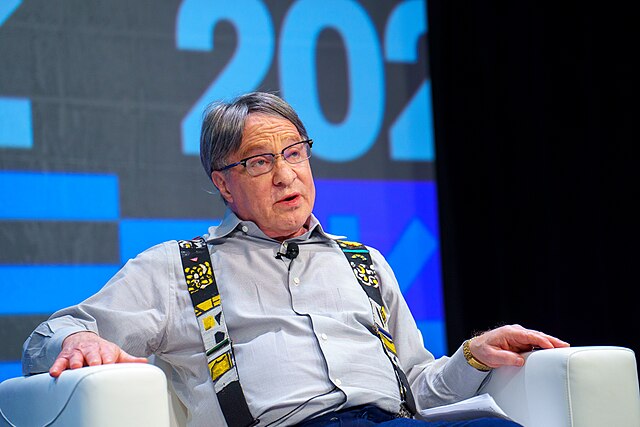Recently, I was listening to a podcast on which one of my favorite YouTube content creators was a guest. The topic got to computer programming, and the podcast host mentioned a man named Ray Kurzweil. The guest responded by saying he had definitely heard of him, and that Ray is a real “good news guy”, meaning that he was in the business of telling people that it wasn’t all bad, and we’re not all going to die within ten years. That caught my attention, since I’ve been going through a real apocalyptic spell these last couple of months. I could do with a smart person telling me it’s all going to be alright. I googled the man, and found out he was mainly involved with Artificial Intelligence, known for predicting that the singularity will take place by 2029.

In a recent TED Talk, Kurzweil spoke about the origins of AI, and how it properly got its name at a conference in 1956. Back then, not very many people were even aware of AI. Among the people that were aware of it, there were quite a few people who were sceptical about the idea of AI ever really “taking off”. This has obviously changed massively in the past couple of years. Even my weird uncle knows about it, if only as the annoying thing that his students use to cheat on their assignments. On top of that, I don’t think there’s very many people out there today denying the massive potential that AI has to grow into something much bigger and much more useful.
Kurzweil also mentions how humans are the only species on earth that use tools to make other tools. One of the tools we’ve created by using tools, are our smartphones. Almost everyone carries one with them, and Ray Kurzweil notes that they “make us smarter”. This reminds me of something Canadian philosopher Marshall McLuhan said:
Rapidly, we approach the final phase of the extensions of man– the technological simulation of consciousness, when the creative process of knowing will be collectively and corporately extended to the whole of human society, much as we have already extended our senses and our nerves by the various media.
Here, McLuhan states that media will eventually become extensions of our own selves. In a sense, the smartphone has already become this. It’s this thing we carry with us everywhere we go, that we can use to look up information on whatever we want, whenever we want. We use it to communicate with each other, and it shapes our thinking and actings. All of this, sort of like a second brain. This has made us into a kind of Cyborg (see also A Cyborg Manifesto by Donna Haraway). This cyborg-ness is only going to get more and more obvious, as Kurzweil predicts that “by the 2030’s we will connect our brains to the cloud.”
All this stuff is cool, but what I came looking for when I Googled Ray Kurzweil’s name, was the good news that the podcast guest had mentioned. Thankfully I did not have to be disappointed. Kurzweil talks about the upward trends that have been happening in worldwide wealth, health and education, and how AI is only going to “supercharge” all of this. He talks about AI coming up with cures for cancer, being able to simulate medical trials using AI, and, most interestingly, longevity escape velocity. What this means, is that life expectancy will start to improve faster than the rate at which we are aging. Of course AI is going to help with all of that, where it isn’t doing so already. Kurzweil jokingly talks about how by 2035, we’re going to get more than a year of longevity for every year we live, “so you’ll go back in time, which is cool.” No need to worry about running out of resources either, because AI will help us come up with solutions for that as well.
Kurzweil ends the TED Talk with the following quote:
We will be funnier, sexier, smarter, more creative, free from biological limitations, we’ll be able to choose our appearance, we will be able to do things we can’t do today, like visualize objects in eleven dimensions, we can speak all languages, we’ll be able to expand consciousness in ways we can barely imagine, we’ll experience richer culture with our extra years.
All in all, a very hopeful message from Ray Kurzweil. I hope he is right, and that a couple of decades from now, AI (or at that point, AGI) will have solved all the problems we currently face, and that we can live in a much happier and more stable society. But somehow I can’t shake the feeling that none of this is true. Kurzweil no doubt knows a lot, and he has earned his stripes in his field, but nobody can really predict the future. I don’t know if I can share in his optimism.
The TED Talk that inspired this post: The Last 6 Decades of AI — and What Comes Next | Ray Kurzweil | TED


The existential dread is understandable, especially when looking at politics. Where I think he has a point is when looking at the recipients of the physiology Nobel Prize winners of 2024. They created an AI algorithm that could accurately predict the shape of dozens of protein structures in an instant, which would have taken years of human research. It is nice to have some more positivity, which usually doesn’t sell very well by the media and isn’t desired by social media algorithms either. Thank you!